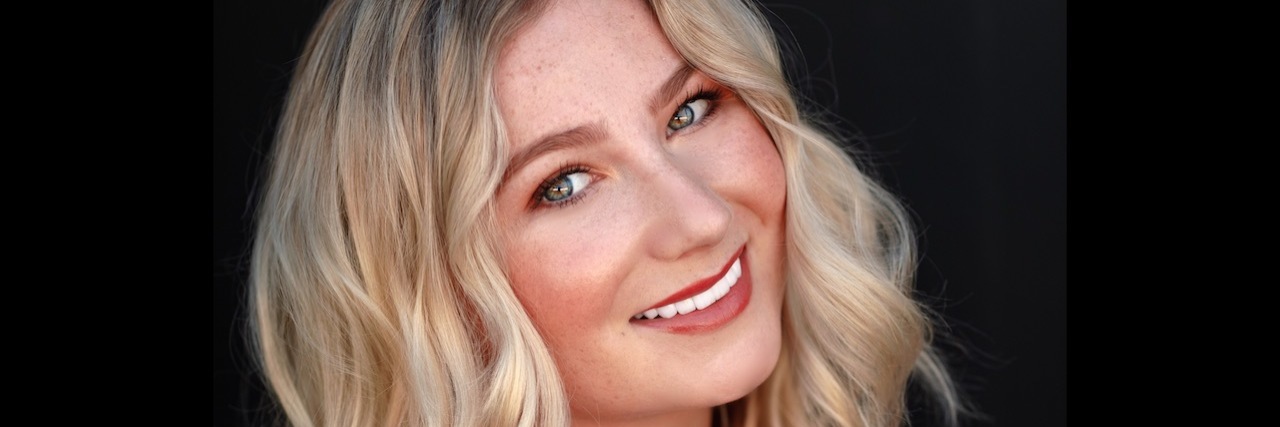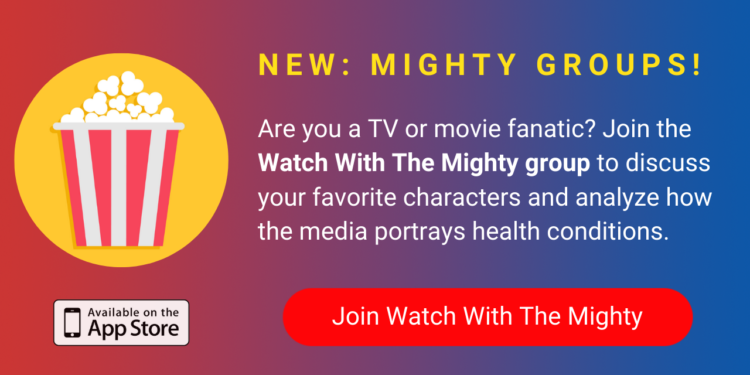Disability Activist Keely Cat-Wells Wants to Make the Entertainment Industry More Accessible
Whether it is your true passion or a fleeting thought, many of us have wondered what it would be like to star in a movie or work in the entertainment industry at some point in our lives. But, for people with disabilities, pursuing work in the entertainment industry is not just based on talent. Inaccessibility and harmful stereotypes about disability can be major barriers, on both sides of the camera.
Keely Cat-Wells is one of many disability advocates fighting to make the entertainment industry a more inclusive place for people with disabilities, so more of their stories can be told. Cat-Wells is the founder and CEO of management company C Talent, Zetta Studios and Zetta Finance. C-Talent and Zetta Studios both work to make the industry more inclusive for disabled actors.
To learn more about her work and accessibility in entertainment, Cat-Wells talked to The Mighty about the importance of removing barriers for disabled actors and how her own experience drove her to this mission. Here’s what she told us.
Editor’s note: This interview has been edited for content and clarity.
Tell us a little about your background. How did you get into entertainment?
I grew up in the countryside in England, and my parents trained horses and farmed for a living. It was a child’s dream! I got to ride horses, go on adventures and really have totally free rein. I did not get on well at school, often the odd one out for reasons I still cannot pinpoint and I was extremely shy. One day a touring acting show came to the school and ran a workshop. I fell in love with the feeling of performing and imagination so my Mum enrolled me into regular musical theatre classes and community theatre and it really all took off from there.
In my pre-teens, I got an acting agent and booked a variety of Disney shows, commercials and a West End Show “Oliver!” with Rowan Atkinson, Mr. Bean. This solidified my choice that this was the career I wanted. Dance became my primary discipline. When college came around I auditioned for the top dance colleges in the U.K.
In college, I began to feel sick, I could not hold down food, and I was in so much pain. The doctors told me I had anorexia and bulimia because of my weight. I then changed doctors and the next one thought that I had irritable bowel disease. About a year and a half later I had an operation to remove a part of my colon. The operation went wrong. They put in some mesh that I had an allergic reaction to. Eight major surgeries later and a year into the process, doctors decided that a permanent ileostomy would be my best bet and just to remove the whole colon. My ileostomy saved my life and changed it for the better. It’s very interesting growing up able-bodied and then becoming disabled later in life. This experience changed my course from dance to becoming a change agent in the industry.
What are some of the biggest barriers people with disabilities face in the entertainment industry?
The first challenge is inaccessible facilities. Too many times my clients had to perform their auditions in a hallway or car park, as the casting building had no elevator. Too many times my clients said they could not check the casting website because it was not accessible for the blind community as well as the neurodiverse community. Too many times have my clients been turned down for a job because the location was inaccessible. I could go on and on.
The solution is that small adjustments will make a big difference. When it comes to physical infrastructure, an issue we often come up against is that owners of older buildings believe the Americans With Disabilities Act (ADA) only applies to new construction or alterations. Therefore, buildings that existed prior to the ADA’s enactment do not need to be accessible, but the ADA actually requires all barriers are removed. Companies have the power to make such systemic change, and if they become an ally they can make advances to change a world that was not made for us.
The second is a lack of knowledge about people with disabilities in general. Ableism is a massive problem in the entertainment industry. When ableism is on screen it is seen by millions and spread like a virus. Ableism characterizes persons as defined by their disabilities and as inferior. A tangible action to combat this is to hire more people with disabilities on all levels and hire us because we are talented, not because we tick a box.
Unfortunately, 95% of the roles depicting disability are not going to people with a disability, they are played by able-bodied actors hoping to win awards for depicting incorrect representations of disabled characters, which is applauded by ableist audiences. The solution is to hire disabled talent in all roles, behind and in front of the screen.
What are some other factors that keep disabled and other marginalized people from being successful in the entertainment industry?
The lack of ethnically diverse, gender diverse and disabled gatekeepers. Think of all the current studio heads in Hollywood. I bet the first picture that comes to mind is a middle age, white, able-bodied man. He has lived a life of systematic privilege, so have I because being white is a privilege. In the recent Black Lives Matter protests we saw a sea of company leaders making statements on social media about how they were going to handle racism in the workplace and how their companies were going to make a difference. This is a great example of how diversity and inclusion is suddenly only important when they’re being called out.
Change can persist faster when the entertainment industry can leave its incorrect beliefs behind, depict truthful perceptions, adapt efforts, and hire people with disabilities. We do not need special treatment, we need equal treatment and true equality.
What should people know about your latest project, Zetta Studios, especially people with disabilities?
Zetta Studios is the world’s first film and TV studio that is fully accessible for people with disabilities, carbon-neutral and founded by a woman. I started this venture because I am sick and tired of seeing my clients and friends climb up stairs and drag their wheelchairs behind them to get to work and frustrated by the constant excuses as to why production did not have anyone with disabilities work on their production. Rather than complying, we are building infrastructure that will allow everybody to participate, which will bring new projects into the world, new content will flood our screens, and new messages will be spread around the world.
The film industry is starting to make small gestures to help with worldly progress, and now it is time to make a total industry ecosystem transformation, which will be led by Zetta. These changes also include being good to our environment — we will be maximizing and incentivizing spaces with solar and wind power. We will operate most effectively by measuring and analyzing greenhouse gas emissions, reducing energy consumption, reducing waste and utilizing carbon capture.
The impact of COVID-19 has reshaped the future of our world on a global scale. With this in mind, we are future-proofing this studio by enabling productions to carry on during a lockdown, essentially creating our own self-sustaining safety net. This will allow us to shut off parts of the lot completely, while each individual production maintains access to its work and accessible living accommodations.
Why is disability representation in media so important?
I believe to change the world we have to learn to tell and listen to a new set of stories about the world that we want to create. The media is being watched all the time. The power of it is unimaginable. If we paint the wrong pictures about people with disabilities, the world will see it and believe it. We have to familiarize audiences seeing people with disabilities on their screen, authentically and in a new light. Knowledge is power and the media is a global teacher whether we actively realize it when we are watching entertainment or not.
We have a stereotype of what a villain in our head looks like, of what a victim looks like, of what a mother looks like. Think about what a stereotypical disabled person looks like to you because of the media. Let’s reshape these stereotypes and let’s reshape the stories.
You can follow Keely Cat-Wells on Instagram and her website for more information on Zetta Studios.
Image courtesy Keely Cat-Wells


